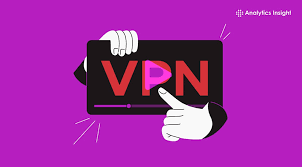The Internet has enabled access to a plethora of digital marketing campaign options. It has also provided tremendous opportunities for new businesses to grow. But growth requires proper planning and consistent effort.
Planning involves taking important things into account before implementing a decision. Aggressive advertising can create problems for your nascent business. Here’s what you can do before launching a digital campaign for your business.
Identify Your Target Audience
You may have heard the phrase: “Customer is King”. But do you know who your customer is? Entering the market without having identified the target audience is akin to throwing darts in the dark. Extensive market research can provide great insights into customer demographics. Moreover, you will need to decide if you’re aiming for businesses or end-users.
Your search results will help you determine the type of marketing campaign for your business. A business-to-business (B2C) campaign allows you to cater to a defined group such as service providers and retailers. Business-to-consumer (B2C) campaigns are aimed at selling products directly to consumers.
You can conduct market surveys in order to identify the challenges and opportunities for your business. You can also contract the services of a third party to perform said survey for you, provided you have finances to spare.
Identify Your Business Objectives
Do you want to build brand visibility or are aiming for conversion and lead generation? Increased engagement or maximized profits? New entrants often overlook these important questions and jump straight into the wilderness that is marketing.
As a beginner, your business goal should be brand awareness. Creating a solid online presence can help you increase engagement and convert leads into actual customers. Well-defined business objectives will enable you to define a budget for your marketing campaigns. Successful companies tweak their business objectives according to market conditions.
Identify Your Digital Marketing Campaign Platforms
This is perhaps the trickiest and most fun part of the entire process. Recruiting a digital campaign agency can take a huge toll on the finances of beginners. The good news is that you can choose from a wide range of free marketing tools. These utilities include:
- Google Ads
- Email Marketing
Utilizing different digital marketing channels can provide added impetus to your business growth. These platforms come with a wide range of marketing features in addition to their tremendous reach. Learning how to use them is no rocket science either (the Internet is literally flooded with articles explaining the use and benefits of these digital marketing tools).
You can also create a YouTube channel to increase engagement for your brand. One of the major benefits of marketing through YouTube is that it allows businesses to advertise their products over a wide range of mediums including cable TV and satellite TV especially those that come with Spectrum Specials after using the Spectrum bill pay option.
Use SEO to Boost Organic Traffic
Whether you’re a new entrant or have already worked your way through the nitty-gritty of the digital marketing world, you should not underestimate the importance of search engine optimization (SEO). By successfully implementing SEO you can gain an edge over the competition.
SEO targets quality traffic and can help you get more clicks than pay-per-click or PPC. Another perk of SEO is that you don’t have to pay for ads in SEO as compared to other digital marketing tools. A high-performance website can help you improve your organic search rankings.
On a Parting Note…
Digital marketing campaigns are crucial to brand visibility and revenue generation. An effective digital marketing campaign strategy seeks to:
- Boost engagement
- Establish consumer trust in the brand
- Maximize sales revenue
- Identify new audience
A result-oriented digital marketing campaign will enable you to achieve success and growth. It will help you identify new opportunities for improvement. The nature of business is that it evolves with changes in consumer preferences. You can stay relevant in this hypercompetitive environment as long as you keep with all technological advancements.








